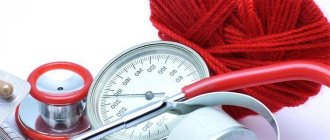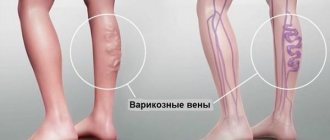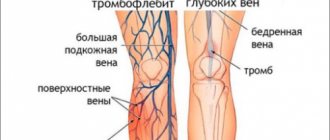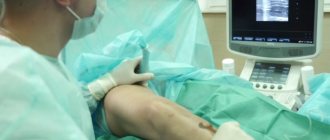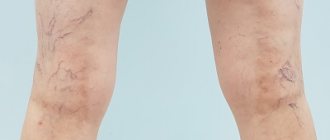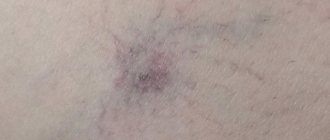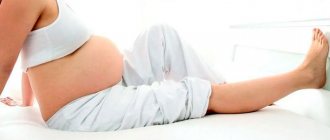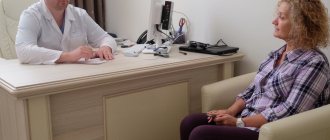Speaking about modern methods of treating varicose veins of the lower extremities, we can distinguish three fundamentally different medical approaches that do not replace, but complement each other. Each of these treatment areas has proven effectiveness, confirmed by good European clinical studies. All these techniques are used by specialists in Moscow, the Moscow region and other regions of Russia. Our phlebology center is no exception!
Treatment of varicose veins in a modern phlebology center
Modern European approaches to the treatment of varicose veins can be divided into the following groups: the first is conservative treatment of varicose veins, the second is surgical treatment of varicose veins and the third is sclerotherapy of varicose veins (scleroobliteration).
Is it possible to get rid of varicose veins by taking venotonic drugs?
Every practicing specialist in the treatment of venous pathology can tell dozens, or even hundreds, of stories of patients who came to him after long-term conservative treatment of varicose veins of the lower extremities. A central place in such therapy is occupied by various oral preparations in the form of tablets and capsules.
Many drugs for the treatment of varicose veins
A huge number of doctors, including surgeons at public clinics, consider this treatment to be the only correct and promising one. Their patients have been trying to get rid of varicose veins for years, carefully following the doctor’s recommendations. Over time, new veins and various complications of varicose veins appear.
Observation by a phlebologist
Dressing and examination by a doctor are performed the next day after surgery. Subsequent scheduled consultations with a phlebologist - 3, 6 and 12 months after surgery - are needed to monitor the dynamics of recovery. If necessary, the patient of the Center is provided with free observation for six months.
Are modern tablets and capsules for the treatment of varicose veins really so ineffective?
The modern pharmaceutical industry offers a large selection of good and high-quality drugs for oral use in the treatment of varicose veins. These agents have significant and proven effects in the treatment of swelling, heaviness, venous pain, cramps and discomfort associated with chronic venous insufficiency.
Modern venotonic - Detralex
But do these drugs treat varicose veins themselves?
A pathologically altered vein is a hollow tube with thinned walls and non-functioning valves. The best treatment, in theory, would be organic restoration of the venous vessel with normalization of the valve apparatus. It’s just that irreversible degenerative changes have already occurred in the venous wall. Today, at this stage of development of modern medicine and pharmacy, there are no effective ways to restore varicose veins, either with the help of interventions or tablets and capsules. Work in this direction is underway, but its effectiveness still leaves much to be desired. Perhaps the dream of restoring a vein destroyed by varicose veins will come true in the coming decades, but we live not in the future, but in the present.
What substances keep veins healthy?
For the full functioning of the cardiovascular system, certain elements are necessary that have a direct impact on its condition:
- Vitamin E - restores the elasticity of vascular walls, accelerates cell regeneration, normalizes blood clotting. “Vitamin of Youth” improves immunity, protects tissues from the effects of free radicals;
- copper - participates in the production of collagen and elastin fibers, prevents the formation of “nodules” on the legs;
- bioflavonoids – activate lymphatic drainage;
- ascorbic acid - relieves inflammatory processes, thins the blood, eliminates swelling, strengthens connective tissue fibers;
- rutin (vitamin P) - restores the cellular structures of capillaries, stops their destruction, acts as an antioxidant. Helps fight swelling, maintains normal blood pressure;
- fiber - stimulates intestinal function, eliminates constipation.
The listed substances do not have to be taken in the form of supplements. All of them are found in regular foods.
What can replace venotonic tablets and capsules?
The only truly effective and efficient treatment for varicose veins at present is vein removal. Innovative interventions have transformed from serious operations to easy and safe outpatient procedures. One or two hours in the clinic and a serious problem with a long history is solved. It’s paradoxical, but modern innovative treatment for varicose veins is not only safe and comfortable, but also much more effective than a classic operation that has been proven for decades.
Modern treatment of varicose veins using sclerotherapy
Do not think that modern drugs are useless. They perfectly perform their functions in the complex treatment of venous pathology. However, treating varicose veins only with tablets and capsules is, at a minimum, not professional.
Healthy foods
The basis of the optimal diet for a patient with varicose veins is:
- lean sea fish;
- tomatoes;
- dried fruits;
- carrot;
- nuts (except walnuts);
- onion;
- cranberry;
- garlic;
- currant;
- citrus;
- cherries;
- kiwi;
- blueberry;
- cereals (buckwheat is especially useful);
- pears;
- grape;
- sea buckthorn;
- whole wheat bread;
- watermelons;
- low-fat fermented milk products;
- eggplant;
- seafood;
- pumpkin;
- seaweed;
- melon;
- unsalted cheese.
Consumption of animal fats should be kept to a minimum. Dishes should be flavored with a small amount of vegetable oil.
You need to eat meat, but little by little (2-3 times a week is enough). Preference should be given to beef, chicken, turkey, veal, and rabbit.
Questions from patients about the use of venotonic drugs
Ninel from Moscow is interested: do you recommend tablets for the treatment of varicose veins?
Dear Ninel! Specialists at the Moscow City Phlebology Center use tablet forms of oral phlebotonic drugs in the complex treatment of varicose veins.
Ekaterina from Moscow asks: is it possible to cure varicose veins with pills?
Dear Ekaterina! It is impossible to cure varicose veins with pills alone. Modern treatment of venous pathology involves the use of venotonic drugs in the complex treatment of varicose veins, but not monotherapy with tablets.
Lyudmila from Moscow is interested in: what medications for varicose veins are best to use today?
Dear Lyudmila! In modern phlebological practice, the most proven effect in the treatment of venous pathology is possessed by drugs of the diosmin group and micronized purified flavonoid fraction.
Varvara from Moscow asks: is it possible to take pills for varicose veins after vein removal surgery?
Dear Varvara! The use of modern oral drugs of the venotonic group has a positive effect on the course of the postoperative period, in the absence of contraindications. Therefore, such therapy is recommended.
General principles of nutrition
When following a diet for blood vessels, it is important not only to choose healthy foods wisely, but also to adhere to the rules of nutrition:
- be sure to have breakfast. At this meal you need to eat about half the daily amount of carbohydrates and proteins;
- eat 5-6 times a day in small portions. This mode will evenly distribute the load on the digestive tract and valve-pump system;
- do not drink food, so as not to reduce the concentration of gastric juice;
- Organize your last meal 3-4 hours before bedtime.
Particular attention should be paid to giving up bad habits - smoking, alcohol abuse. They increase blood clotting and slow down metabolism. You should also not take any pharmaceutical drugs without a doctor's prescription.
Recommendations from experts
Varicose veins are a hidden and dangerous disease. Its course in most cases does not have pronounced symptoms, which is why the patient loses precious time to take specific measures to treat the disease. Preventative measures are important in the recovery process. If there are patients with varicose veins in your family or the first signs of the disease have already manifested themselves, you need to contact a specialist and develop an individual treatment plan.
Prevention of varicose veins includes several important recommendations:
- Move more - walking, swimming, yoga and gymnastics will tone blood vessels, disperse lymph congestion and increase overall immunity;
- Watch your weight - the load on your legs provokes the development of the disease. Proper nutrition, fluid balance and a healthy lifestyle will help control weight and health;
- Avoid wearing tight-fitting clothes and high-heeled shoes;
- Avoid visiting saunas and baths. Hot baths are also prohibited;
- Wear compression garments and maintain healthy veins with courses of phlebotonics.
Radiofrequency ablation (obliteration, RFA, RFO)
Treatment of varicose veins using radiofrequency equipment (RFA) is considered one of the most progressive techniques.
Laser treatment of veins in its medical and cosmetic effect approaches the characteristics of RFA, but loses for a number of reasons. Advantages of RFA over endovasal laser coagulation (EVLC)
- Radiofrequency equipment is modern and accurate, therefore it practically eliminates the possibility of medical error;
- After RFA, you need to wear compression stockings for 1-2 weeks. After EVLT – 4-6 weeks and additionally take anticoagulants;
- After EVLT, instruments are sterilized, so there is a risk of infection. RFA involves the use of disposable consumables;
- During EVLT, the structure of the optical fiber may be damaged (the distal fragment breaks off) in the lumen of the venous vessel, which requires its removal through open surgery through an incision.
The radiofrequency ablation method (obliteration, RFA, RFO) allows you to avoid:
— hospitalization in a medical institution;
— general anesthesia (anesthesia);
— surgical incisions and sutures;
- damage to nerve structures and lymphatic vessels.
How is the radiofrequency ablation procedure performed?
RFA of varicose veins is performed under ultrasound guidance. A thin, controlled catheter is inserted into the dilated vein (the trunk of the great or small saphenous vein) (usually through a puncture of the skin in the thigh or lower leg). After administering local anesthesia, a radiofrequency heating procedure is performed along the affected vein, causing the vein to shrink and “seal.” Thus, the channel where blood from the deep veins was “dumped” and where blood stagnation occurred is eliminated. Varicose convoluted venous tributaries are removed with special hooks through micropunctures, or a special drug is injected into the lumen of these tributaries - sclerosant, which subsequently causes them to “stick together”.
Watch the video “Radiofrequency obliteration of varicose veins in the Pirogov clinic.”
Advantages of RFA over other methods of treating varicose veins
- Minimally invasive surgery;
- Reliable and safe procedure;
- The operation is performed quickly (on average 60 minutes);
- Short rehabilitation period (on average – 1 week);
- The patient immediately returns to his normal lifestyle (no restrictions on movement);
- Aesthetic appearance (beautiful skin without varicose veins, scars and cicatrices);
- Effective treatment of varicose veins.
Consequences and complications of varicose veins
- thrombophlebitis;
- pulmonary embolism
(occurs unexpectedly, without any previous symptoms);
- trophic ulcers;
- bleeding from damaged veins;
- swelling of the legs, impaired blood supply to tissues, thickening and darkening of the skin, itching.
If signs of varicose veins appear, you should not delay visiting a phlebologist. The sooner the patient is examined, the higher the chance that the doctor will be able to treat varicose veins without pain and complications. Tablets, ointments and drugs can only give a temporary effect. Compression hosiery is an effective means of prevention. A phlebologist will help you choose the right type of knitwear and degree of compression.
The only way to get rid of varicose veins once and for all is through surgery. A carefully performed operation eliminates the possibility of relapse. The affected veins are removed or “glued together.” This is safe for the patient’s body, since no more than 5-10% of the blood flows through the saphenous veins, and the deep veins easily take on this load. There are traditional methods of surgical treatment of varicose veins and modern minimally invasive methods, which include:
- Radiofrequency obliteration (RFA/RFO)
- Sclerotherapy
- Miniphlebectomy
These methods are used by doctors at the Pirogov Clinic in St. Petersburg.
Using ointment for spider veins on the legs
The use of ointments or tablets will not work on spider veins. To remove stars on the legs, sclerotherapy is used - a method in which a drug is injected into the vessel to glue the veins together, causing them to stop expanding. For varicose veins, this method also works and is used when it is impossible to use other types of surgical treatment.
Sclerotherapy is more like a cosmetic procedure. Traces after surgery completely disappear over time. The procedure is painless. Local anesthetic may be used individually at the request of the patient. After the operation, the patient goes home.
